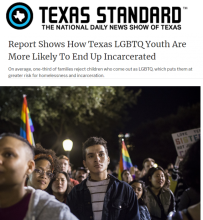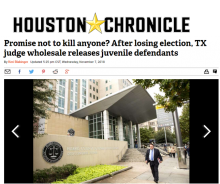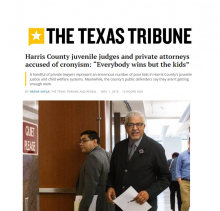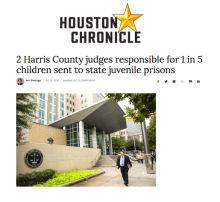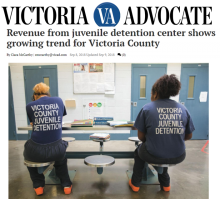On average, one-third of families reject children who come out as LGBTQ, which puts them at greater risk for homelessness and incarceration.
[2019 Session] “Second Look”: Provide an Earlier Parole Review to People Sent to Adult Facilities as Youth
Policy Background
After a series of U.S. Supreme Court cases, states were required to eliminate mandatory life without parole sentences for youth under 18 years of age. Texas now requires people who would have received that sentence to instead serve 40 years before becoming eligible for parole, a de facto life sentence that provides no reasonable opportunity to build a life outside of prison.
